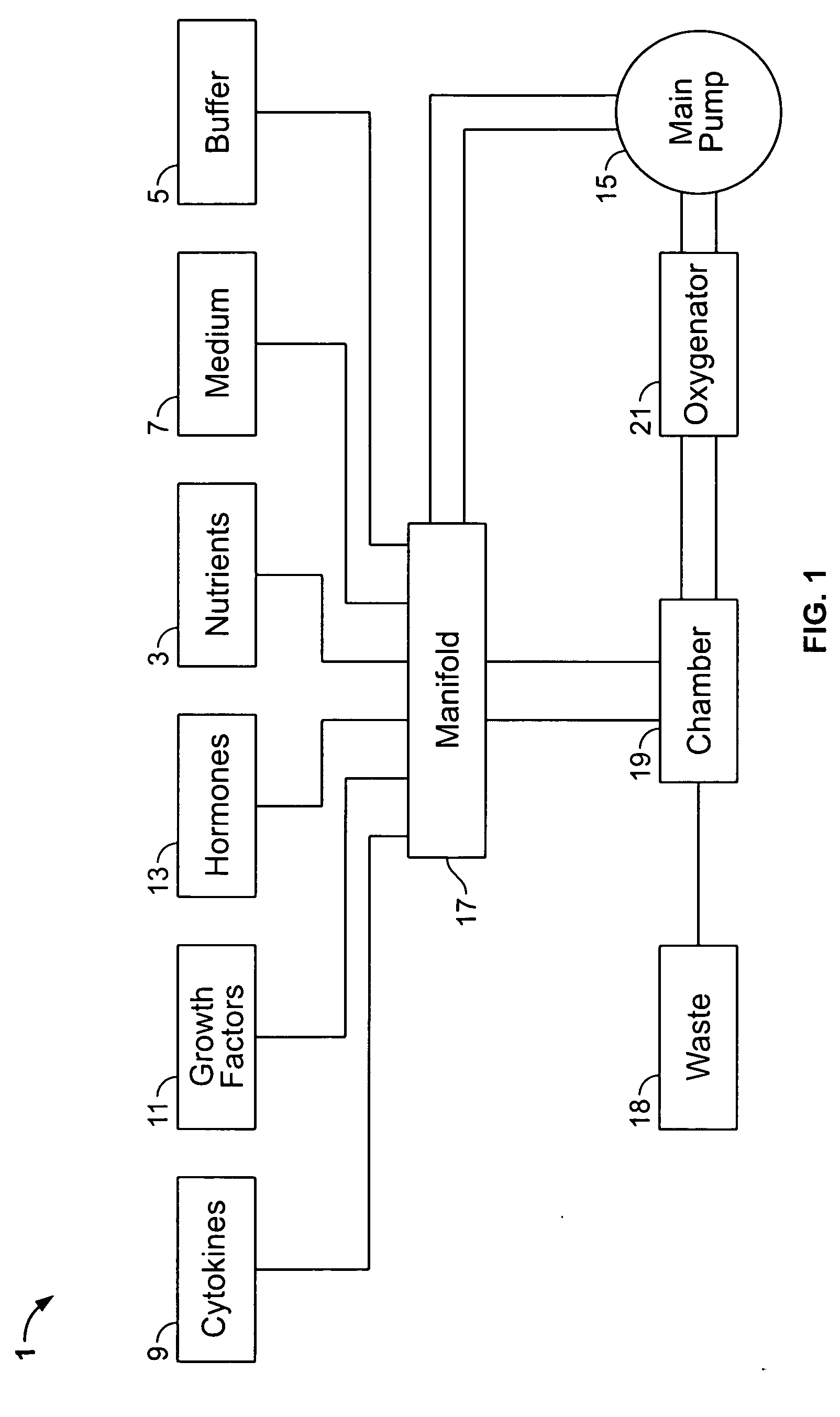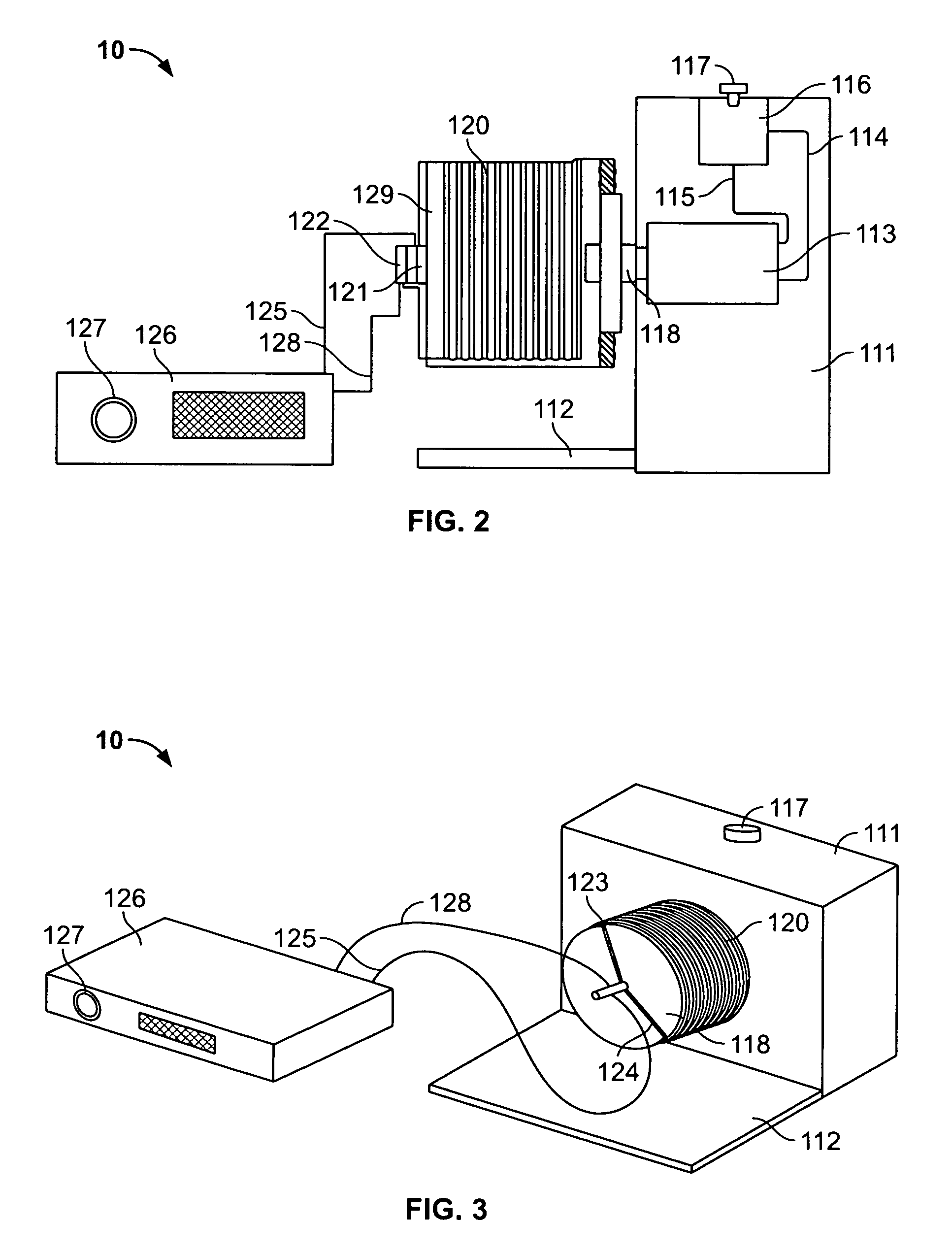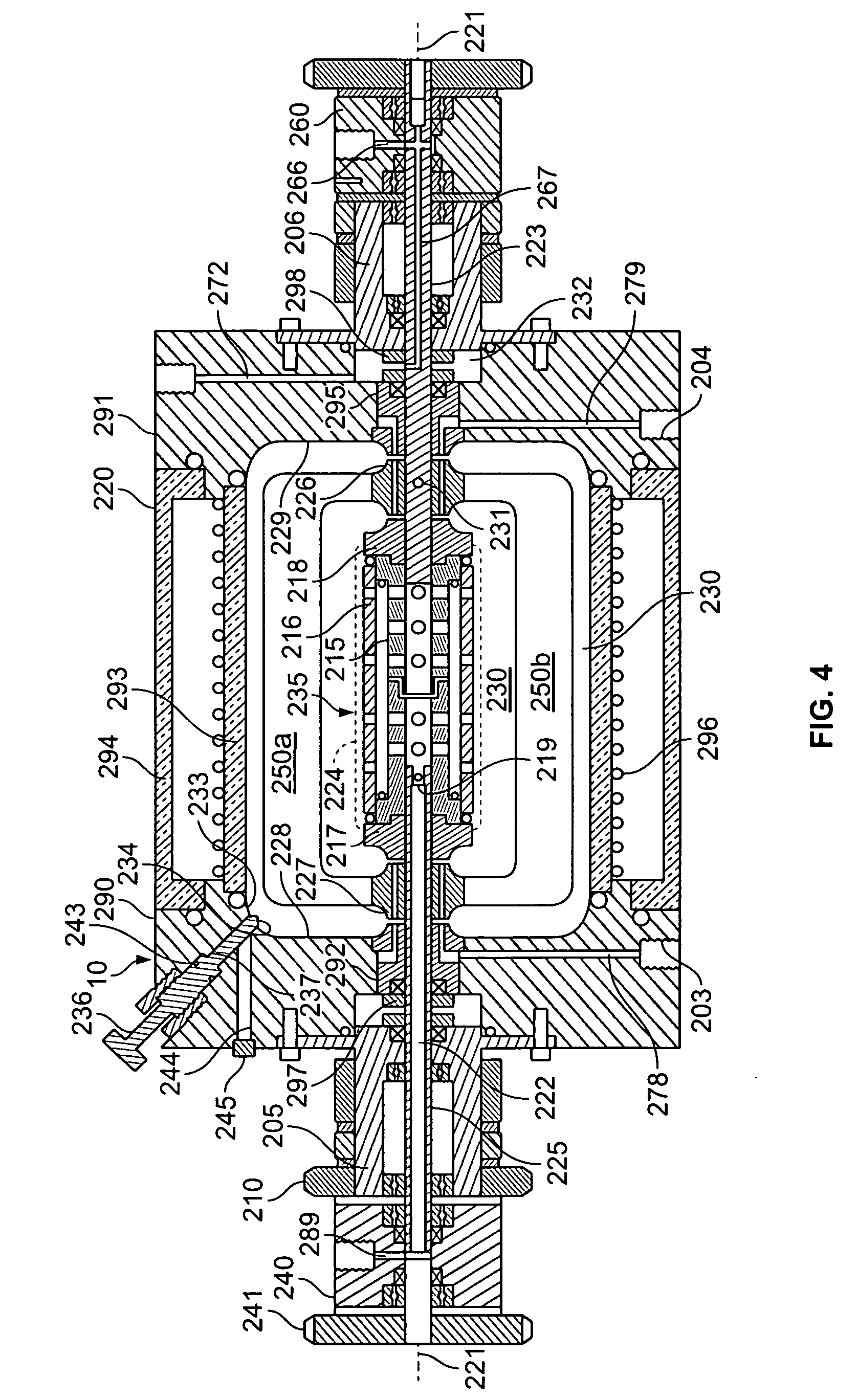Method and composition for treating diabetes
a technology for diabetes and composition, applied in the field of diabetes composition, can solve the problems of many problems in the transplantation of human tissue, including pancreatic tissue, and the use of embryonic stem cells for tissue regeneration, and achieve the effect of effectively repairing the damaged pancreas
- Summary
- Abstract
- Description
- Claims
- Application Information
AI Technical Summary
Benefits of technology
Problems solved by technology
Method used
Image
Examples
example i
Actual TVEMF-Expansion of Cells in a TVEMF Bioreactor
[0098] Peripheral blood was collected and peripheral blood cells expanded as shown in Table 1, and described below.
[0099] A) Collection and Maintenance of Cells
[0100] Human peripheral blood (75 ml; about 0.75×106 cells / ml) was collected from ten human donors having Type I diabetes by syringe as described above and suspended in 75 ml of Iscove's modified Dulbecco's medium (IMDM) (GIBCO, Grand Island, N.Y.) supplemented with 20% of 5% human albumin (HA), 100 ng / ml recombinant human G-CSF (Amgen Inc., Thousand Oaks, Calif.), and 100 ng / ml recombinant human stem cell factor (SCF) (Amgen) to prepare a blood mixture. Ten blood samples were set aside as control samples. The peripheral blood mixture was placed in a TVEMF-bioreactor as shown in FIGS. 2 and 3 herein. TVEMF-expansion occurred at 37° C., 6% CO2, with a normal air O2 / N ratio. The TVEMF-bioreactor was rotated at a speed of 10 rotations per minute (rpm) initially, then adjust...
PUM
| Property | Measurement | Unit |
|---|---|---|
| temperature | aaaaa | aaaaa |
| time | aaaaa | aaaaa |
| volume | aaaaa | aaaaa |
Abstract
Description
Claims
Application Information
 Login to View More
Login to View More - R&D
- Intellectual Property
- Life Sciences
- Materials
- Tech Scout
- Unparalleled Data Quality
- Higher Quality Content
- 60% Fewer Hallucinations
Browse by: Latest US Patents, China's latest patents, Technical Efficacy Thesaurus, Application Domain, Technology Topic, Popular Technical Reports.
© 2025 PatSnap. All rights reserved.Legal|Privacy policy|Modern Slavery Act Transparency Statement|Sitemap|About US| Contact US: help@patsnap.com



